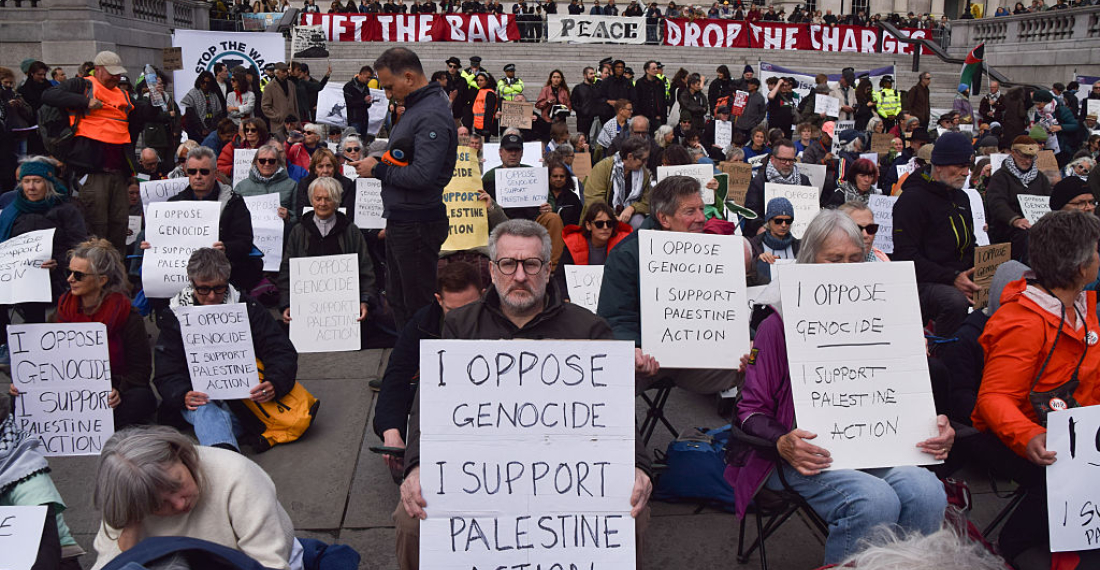“The people of Gaza have suffered enough”. I have heard this opinion often, from many people, of different backgrounds and different persuasions, in recent months, and I share it, though I am not sure if the people of Gaza deserved to suffer at all.
People in the Middle East have a long memory, and depending who you talk to, they may go back hundreds, even thousands of years to explain and justify today. US president Donald Trump has taken to say that the Israel-Palestinian conflict goes back three thousand years.
But let us say for the moment that the current situation in Gaza erupted on 7 October 2023 when thousands of Palestinians, under the leadership of Hamas which has run the Gaza strip since 2007, broke out of the enclave and created havoc on Israeli outposts nearby. The attacks were the first large-scale incursion into Israel since the 1948 war. 6,000 Gazans breached the border in 119 locations into Israel, including 3,800 from the elite Nukhba force, and 2,200 civilians and other militants.
In total, 1,195 people were killed by the attacks: 736 Israeli civilians (including children), 79 foreign nationals, and 379 members of the IDF and other security forces.
The attack cannot be justified. Not only because of the large number of civilians killed, many of who were deliberately targeted, but also because the leadership of Hamas knew very well that Israeli retribution was inevitable, and the civilian population of Gaza, for who they were ultimately responsible, will pay the price. Hamas showed disregard for human life, and must be held responsible.
What followed however was reprehensible. Israel did not just seek revenge. It waged a war for the last two years, during which it sought to raze Gaza to the ground, and it killed tens of thousands of people, mostly civilians, in an act of collective punishment, that shocked the world. Gaza’s Health Ministry said the Palestinian death toll in the war reached 67,139 on Sunday, (5 September 2025), with nearly 170,000 injured.
UN report
The United Nations Independent Commission of Inquiry report on the occupied Palestinian territories has found that Israel committed genocide in the Gaza Strip between 7 October 2023 and July 2025.
The report says that Israel committed four of the five acts outlined in the 1948 Convention on the Prevention and Punishment of the Crime of Genocide, including: deliberate killing, causing serious bodily or mental harm, deliberately inflicting conditions of life calculated to bring about partial or total destruction, and imposing measures intended to prevent births within the Palestinian group.
The reaction of the world has, at best, been inadequate. Countries like France, UK and other EU members, as well as Canada and Australia, after a lot of soul-searching, finally recognised Palestine as a state.
After two years, and after global public opinion finally woke up to the tragedy going on in Gaza, the 20 point American peace plan emerged.
It is, in many ways, a typical ""Trump Plan'". It avoids a lot of the key issues. But it has its positive points. And most importantly it offers the Palestinians in Gaza peace and security, which at the moment they badly need.
The American plan
The 20-point American plan seeks to take Hamas out of the Gaza equation. This is necessary but not easy. Hamas has become part of the Gaza fabric. It will reinvent itself as many Islamist movements have done elsewhere. But its leaders must go, after they released all the hostages they still keep from the 7 October attack.
Then the process of building a new Gaza must start: infrastructure, institutions, and more importantly the spirit and soul of the Palestinian people. Israel plans for annexation of Gaza are out, as is the talk of resettling Palestinians elsewhere. Gaza is, and will remain, Palestine.
One can see that rebuilding the infrastructure will happen quickly. Establishing security can also happen if countries contribute forces, and if the international force has a clear mandate. Institutions will take longer, and much will depend on what is happening in the wider Palestinian spectrum, and Israel’s readiness to honour its part of the deal. It is unlikely that Hamas will hand power to anyone but the Palestinian Authority, and this is one of the points that will have to be negotiated.
Rebuilding the Palestinian spirit will take years, and healing the trauma of the last two years will be difficult, will take time, but is doable. The American plan has some interesting ideas, but the US must be ready to work with diverse partners, especially in the Middle East, the Muslim world, and Europe.
The bad side of the plan
The plan misses one vital point. It does not commit to a two-state solution. Apparently, the Israelis opposed this. The plan, in article 19, says: “While Gaza re-development advances, and when the PA (Palestinian Authority) reform program is faithfully carried out, the conditions may finally be in place for a credible pathway to Palestinian self-determination and statehood, which we recognise as the aspiration of the Palestinian people”. Not good enough!
But for the moment the world, and more importantly the Palestinian people, must accept the American plan, and make the most of it.
Source: Dr Dennis Sammut is the Director of LINKS Europe, and Managing Editor of commonspace.eu
The Monday Commentaries, written by Dennis Sammut, and published on commonspace.eu from March to July 2025, have recently been collected in the book “Our troubled world”, published by LINKS Europe.
Photo: Protestors in London condemn Israeli genocide in Gaza in a protest in Trafalgar Square on 4 October 2025 (picture courtesy of The New Arab, London).






